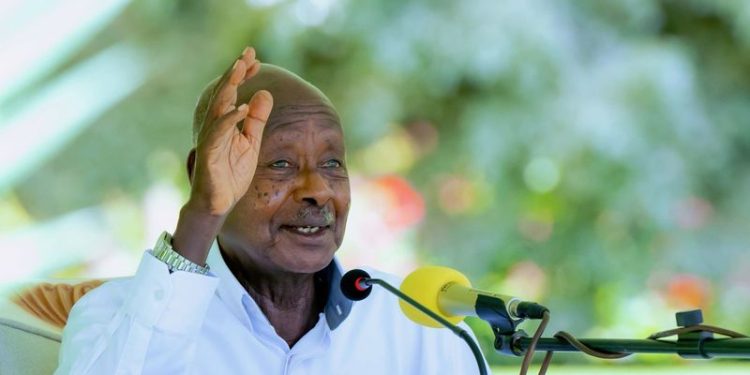President Yoweri Museveni has firmly pushed back against international pressure to alter Uganda’s education framework, particularly in regard to comprehensive sex education.
Speaking at the Third African Inter-Parliamentary Conference on Family and Sovereignty held at State House, Entebbe, on Friday, Museveni dismissed such educational content as foreign interference that clashes with African values.
Labeling comprehensive sex education as “madness,” the President underscored his belief in Africa’s capacity to provide age-appropriate moral guidance rooted in traditional culture.
He warned against the global spread of what he called “disorientation,” suggesting it poses a threat to society.
“Now, for some of the people to want to spread this disorientation to the whole world is really criminal. But it will not work. It will fail,” Museveni asserted.
At the center of his criticism was the Samoa Agreement, a cooperation pact between the European Union and the Organisation of African, Caribbean and Pacific States (OACPS), provisionally applied since January 2024.
The President expressed serious reservations about the agreement’s clauses on sexual and reproductive rights, suggesting that Uganda may pull out entirely if those provisions contradict the country’s values.
“I appeal to you, now that you are here, all of you, and our lawyers are here, study that Samoa document,” Museveni said.
“If it really contains all those things you are talking about, the reproductive rights, what have you, then we shall have to pull out from that nonsense, and tell the European Union that we cannot be part of that criminality. Because comprehensive sexual education, in the Bible, it says there is time for everything.”
The event drew lawmakers, political leaders, and religious groups from across the continent to deliberate on building a united front for the protection of family and cultural identity.
Uganda’s First Lady and Minister of Education, Janet Museveni, echoed the President’s remarks.
She voiced concern over foreign aid initiatives that, according to her, often come with hidden agendas that threaten African traditions and family structures.
She called on African nations to resist dependency and instead invest in culturally grounded education reforms.
Janet Museveni highlighted Uganda’s national programs designed to foster patriotism and moral responsibility, noting that these efforts are fully funded by the government to shield them from foreign influence.
She also reaffirmed Uganda’s adherence to the 2020 Geneva Consensus Declaration, which supports each nation’s right to determine its policies on life, family, and gender without external coercion.
As the conference concluded, delegates rallied behind the idea of drafting a robust African Charter that would assert national sovereignty and protect the continent’s heritage against mounting global pressures.




















